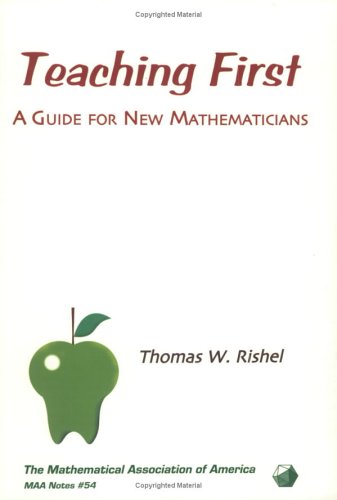Mathematical Association of America Notes
1 primary work • 2 total works
Book 54
This text is written for the mathematics teaching assistants or young faculty members who may be wondering just where and how to start. Rishel opens the eyes of the reader to pitfalls they may never have considered, and offers advice for balancing an obligation to the student with an obligation to mathematics. Throughout, he provides answers to seemingly daunting questions shared by most new TAs, such as how to keep a classroom active and lively; how to prepare writing assignments, tests, and quizzes; how exactly to write a letter of recommendation; and how to pace, minute by minute, the "mathematical talks" one will be called upon to give. This book is Rishel's answer to those who may suggest that good teaching is innate and cannot be taught. This he emphatically denies, and he insists that solid teaching starts with often overlooked seeming trivialites that one needs to master before exploring theories of learning. Along the way he also covers the general issues that teachers of all subjects eventually experience: fairness in grading, professionalism among students and colleagues, identifying and understanding student types, technology in the classroom.
All of the subjects in this book are considered within the context of Rishel's experience as a mathematics teacher. All are illustrated with anecdotes and suggestions specific to the teaching of mathematics.
All of the subjects in this book are considered within the context of Rishel's experience as a mathematics teacher. All are illustrated with anecdotes and suggestions specific to the teaching of mathematics.
Writing in the Teaching and Learning of Mathematics
by John Meier and Thomas Rishel
Published 17 September 1998
Meier and Rishel explore the hows and whys of writing in mathematics. How to get started? How to grade assignments? How to introduce good writing into a maths course, and why you should care to do this? And most importantly, why is it so important to get students speaking and writing about mathematics anyway? This book should provide anybody involved in the teaching of mathematics with useful and constructive tools to examine the assignments they are using and the goals they hope to accomplish with them.

